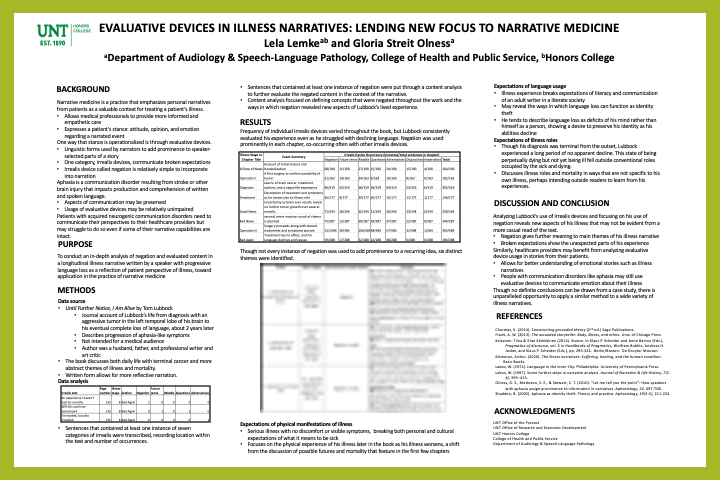First Name:
LelaLast Name:
LemkeMentor:
Dr. Gloria OlnessAbstract:
Narrative medicine is the study of patients' personal narratives of illness as a way to better provide informed, empathetic care. One tool that narrators use when relating emotional stories is a set of linguistic forms called evaluative devices, which add speaker-selected prominence to personally salient parts of a narrative. By combining the practice of narrative medicine with an analysis of illness narratives for usage and content of evaluative devices, healthcare providers may better understand the experiences of their patients. Communicating with healthcare providers is more difficult for people with communication disorders such as aphasia, an acquired neurogenic communication disorder resulting from brain injury such as stroke that impairs comprehension and production of language. However, people with aphasia retain some communicative functionality, and usage of evaluative devices in personal narratives is relatively preserved. We analyzed a longitudinal illness narrative from a man with progressive language loss from a cancerous brain tumor, focusing on his use of irrealis evaluative devices and the content he evaluated. This showed a consistent use of evaluative devices even as his disease and language loss progressed, and the evaluative devices used to emphasize major themes of the text revealed the broken expectations he encountered during the course of his illness. The study shows a need for further research involving evaluative device analysis in illness narratives, and suggests that medical professionals may be able to better understand their patients using this novel technique in narrative medicine.Poster:





